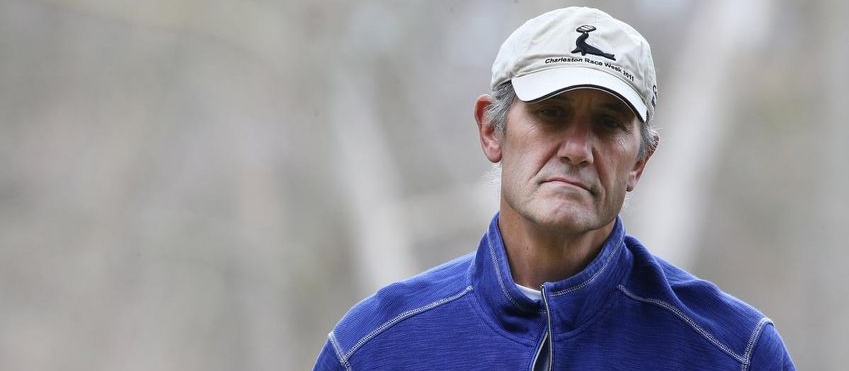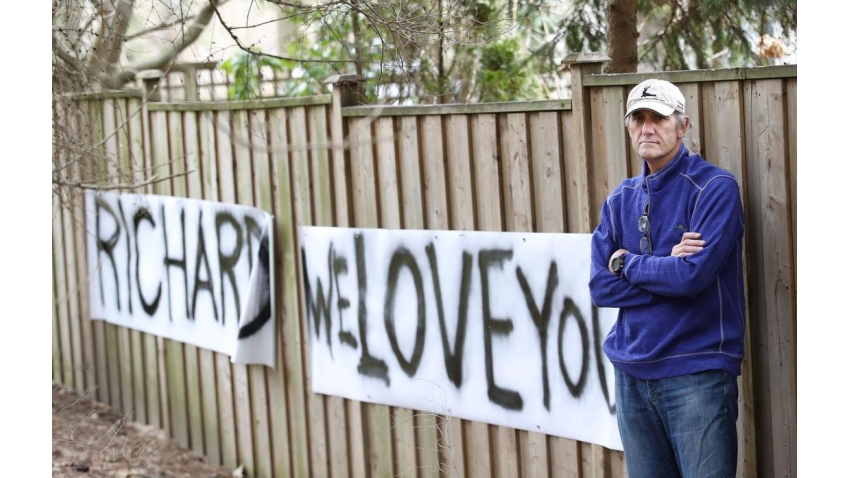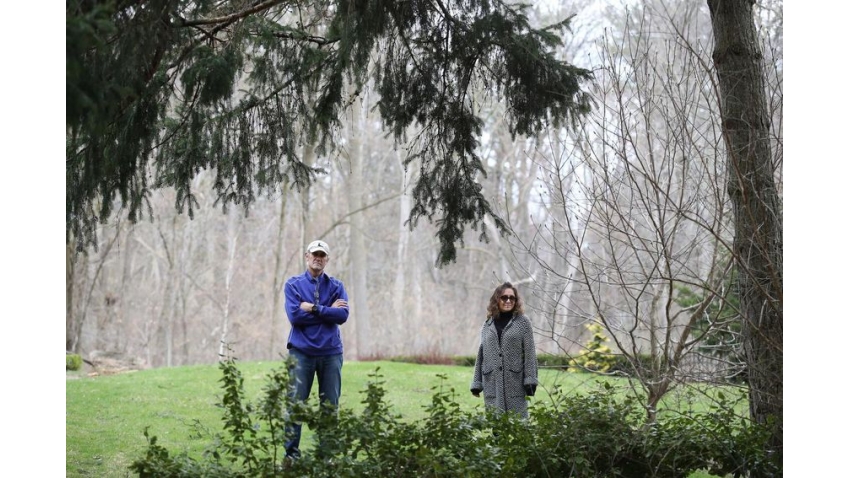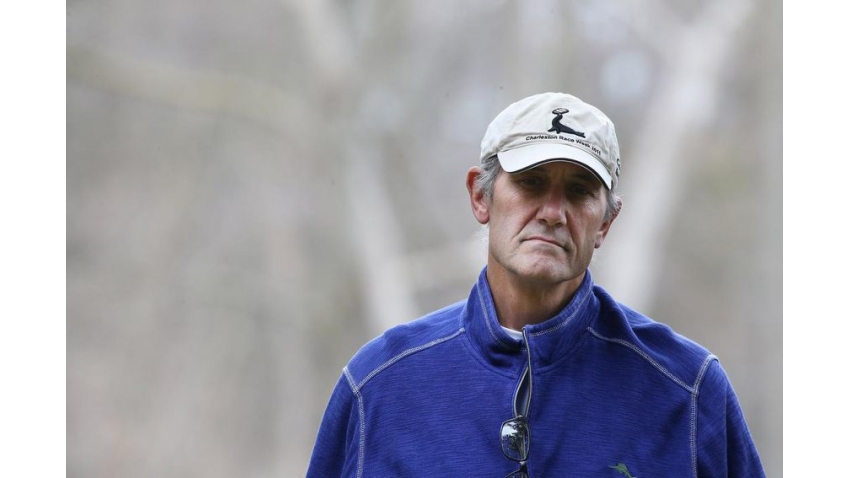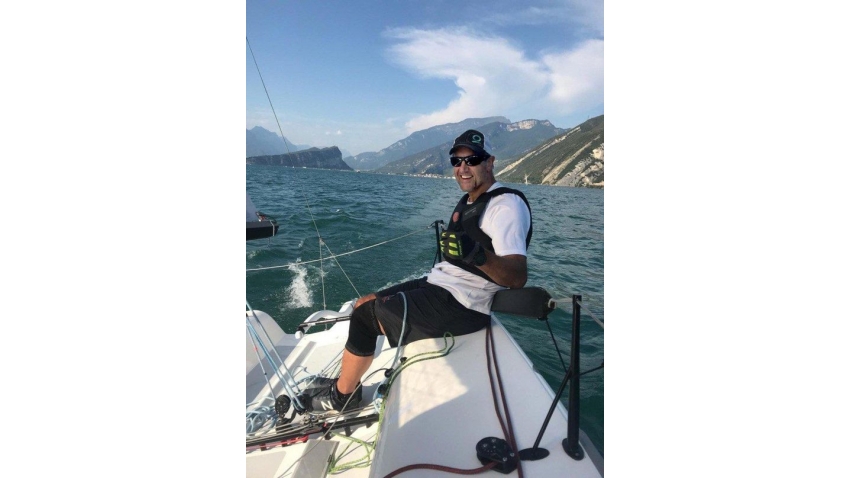Terrifying Journey of Richard Reid After Getting COVID-19
April 16, 2020 - Toronto, ON, Canada - By Jennifer Yang Staff Reporter, The Star - He’s 63, got COVID-19, went on a ventilator — and lived. A Bay St. businessman’s terrifying journey.
When her cellphone rang on March 30, Lori De Luca Reid felt a jolt of surprise seeing her husband’s name on the screen. Eleven terrible days had passed since Richard Reid left their Port Credit farmhouse on a stretcher and was taken to the Mississauga Hospital with a progressively worsening case of COVID-19.
The hospital wasn’t allowing visitors so the couple had been connecting through texts and heart emojis. The unexpected call was a pleasant departure and she picked up, feeling delighted. “Hi honey, how are you?”
But the voice on the line was unrecognizable.
“I was like, this is not Richard. This does not sound like Richard,” De Luca Reid recalls. “All I could hear was a garbled, crying, terrified man.
“Then the nurse that was attending to him grabbed the phone and said, ‘He’s being intubated, that’s what he’s trying to tell you. Now I’ve gotta go.’ And that’s where they left me.” The line went dead.
For the Reids, that phone call marked a turning point in Richard’s struggle to overcome the novel coronavirus and his deliverance into the darkest chapter in any COVID patient’s fight: mechanical ventilation.
The vast majority of coronavirus patients who undergo this procedure end up dying with a tube in their throat. Globally, statistics have been grim: in the U.K., a study reported a 66 per cent death rate for COVID patients requiring advanced respiratory support, including mechanical ventilation. Another study from Wuhan, China, found that only three out of 22 patients survived after being placed on a breathing machine.
De Luca Reid was told that her previously fit and healthy 63-year-old husband had a 50-50 chance of survival. But four days after he was intubated, she received another surprising call — her husband was being “extubated.” He had made it.
Reid now belongs to a depressingly exclusive club: COVID patients over 60 who survive mechanical ventilation.
He wants to share his story because this virus dragged him to the brink and showed him its terrifying depths, and he wants the world to understand.
COVID-19 is a monster, he says. And his survival does nothing to inoculate him against his fear.
“This virus — it’s more terrifying to me than ever.”
***
The first time Reid read about the pathogen that nearly killed him, it was not called COVID-19. Back then, it was still a mysterious outbreak — “pneumonia of unknown etiology” in Wuhan — and he was peeved. Why do these viruses keep popping out of these wet markets?
It piqued his interest. Reid, who runs a private equity partnership, started clicking into his analytical brain: How many people might get infected? How many will die? What will be the global consequences?
“For me, it was like making an odds table. You know: how is this going to play out?” Reid recalls. But “never, ever, ever believing that I would ever be touched by it.”
So as February came to a close, Reid didn’t think twice about flying to Miami, where he was registered to compete in the Bacardi Cup, a competitive sailing regatta that took place between March 1 and 7.
Ontario had just eight confirmed cases of the novel coronavirus — it was before U.S. travel restrictions, social distancing and widespread business shutdowns. But his wife, who was watching the global headlines, was incredulous. “Are you really going to Miami?”
Reid was just as incredulous that he would cancel. “He’s got this invincible attitude,” De Luca Reid says.
Florida was its usual sunny self. Reid and his sailing crew mostly kept to themselves, eating tapas, drinking at a beer tent and attending a party with a mariachi band. “I was just focused on beating the boat in front of me.”
He flew home to discover a different Toronto from the one he left. Ontario’s confirmed case count had tripled while he was gone. Public health officials were warning of community spread, conferences were getting cancelled. Pearson airport was eerily quiet.
Reid went to his Toronto office that Monday and had a typical workday. Then, at 4 p.m., he got a headache, like a vice, slowly tightening around his temples.
He never gets headaches. But it returned the next day, at the same time. He started thinking about his coach, who had a mild cold when they were in Florida, and Reid wondered if maybe he had caught it. The coach tested negative for COVID.
By the end of the work week, Reid had a cough, mild fever and teeth-chattering chills. “I’m thinking, damn it. This isn’t my coach’s cold,” Reid says. And if it’s that other thing, I better find out soon.”
He started Googling frantically — “most efficient testing centres,” “best times to go” — and set off for a COVID assessment centre first thing Saturday. Fear had started to creep in, especially as Reid started thinking of his childhood asthma and past bouts of respiratory illnesses, including pneumonia in his 20s that required hospitalization.
“I was quite nervous that if I got it, it would go after my respiratory system, which is my biggest weakness.
Due to his age, travel and history of respiratory issues, Reid qualified for the test, which took about an hour. He spent the rest of the weekend in isolation.
Monday morning, the call came. “Mr. Reid, I am sorry to inform you that you have tested positive for the novel coronavirus,” said the Peel Public Health worker. “I am going to need a few moments of your time.”
A few moments turned into an hour and a half — the time it took for Reid to remember everyone he had come into contact with over the past week. He got to 40; three of them would later test positive.
They were worried for De Luca Reid, too, but she had been careful, greeting her husband after his trip with just a peck on the lips and ensuring they slept in different bedrooms. After he tested positive, she ramped up her decontamination efforts and Reid was “banished to the basement,” where she delivered meals wearing a mask and gloves and “basically holding my breath.”
Maybe those efforts paid off. Her own test results came back a week later, negative.
But Reid’s health was deteriorating. He started coughing through the night so loudly his wife could hear from her bedroom. A tightness squeezed his chest like a straitjacket. He remembers once hiking in Tibet at 13,000 feet and challenging a friend to a footrace; the air was so thin they could only run 100 yards. “It felt like that,” he says. “It felt like you couldn’t get enough air.”
The public health staffer had been checking in every day and March 19, 10 days after Reid’s first headache, she made the call: it was time to get X-rayed.
They called an ambulance and he was taken on a stretcher by two paramedics clad in protective gear. He only brought his phone and wallet, not really believing he would be in the hospital more than a few hours. But he sensed himself getting sucked into a situation he couldn’t understand.
“I said to myself, wow, I’m going into a black hole. And I don’t know when I’m coming out.”
***
For Richard Reid, a single word encapsulates his three weeks at the hospital: alone.
Nobody could visit. Nobody could touch him. Meals were left on top of a waste bin for him to fetch. Health workers who entered his room did their work with compassion but left as quickly as possible.
“It’s the desperate part of this disease,” he says. “You’re an untouchable. And your loved ones are on the outside looking in and they’re alone too. Everyone’s alone.”
The first hours in hospital were a blur of X-rays and tests. He was soon moved to a ward and given an oxygen mask but two days into his stay, a doctor said: “You are going to the intensive care unit and this is serious.”
Reid was offered hydroxychloroquine and azithromycin — a controversial drug combination not yet proven to work for COVID but being tested as part of a global megatrial co-ordinated by the WHO.
He was also put on oxygen, IV and potent painkillers like fentanyl for the crushing pain in his chest. Every so often, his doctor would invoke the word he dreaded most: “Intubation.” The possibility of mechanical ventilation loomed, but Reid couldn’t accept this; he had watched his 76-year-old father suffer miserably on a breathing tube towards the end of his life.
But on March 30, 11 days into his stay, Reid texted his wife that he needed a CT scan. “Just got results … blood clots in the lungs,” he texted. Does your chest still hurt? she asked. “Hurts like f---.”
The next hour was a fentanyl-laced blur, even as activity swirled. Reid snapped out of his hazy state around 6 p.m., when one nurse suddenly thrust his cellphone at him.
“I clearly remember being jolted into reality by having my phone jammed in my face,” he says. “She said, ‘Look, you have to call your wife. You’re going to have to tell her you’re being intubated.’ And I start crying. Honestly, I started crying. I felt like I had lost.”
Reid registered his wife’s cheerful voice — hi honey, how are you? — but could barely form a sentence before the nurse grabbed the phone back and briskly delivered the news. Then she hung up so they could start.
At home, De Luca Reid was panicking. She quickly drove to the hospital and parked in the driveway, where she knew her husband could see her from his third-storey window. She had been visiting him from this spot ever since he entered the ICU and sensed the parking lot had become a makeshift waiting room for others, too. Some days, she spotted another woman in the lot, kneeling in the dirt and praying.
“I’m literally outside of his window in the ICU driveway, outside in my car, bawling my eyes out, watching people moving around in his room,” she says. “I felt so helpless.”
For Reid, this was the moment he became a spectator in the fight for his own life. Tubes in every orifice were now feeding him and emptying his bladder, and a machine was inflating his lungs and filling it with oxygen. His throat felt like it was ripping from the pain of the tube and his mouth was full of plastic, requiring frequent moist swabs to keep it from completely drying out. His only mode of communication was a whiteboard.
For four days, he passed the seconds by fighting back the overpowering coughs building in his lungs. The worst times were sundown.
“I would literally think: I could check out here and I’m going to be all by myself,” he says. “My wife will be alone, not knowing whether I’ve come or gone. My kids … won’t know if I’ve come or gone. And if I go, they’re just going to dispose of me.”
His one job was to monitor his breathing. When he started to notice slack in the tube, and when the foamy bubbles in his lungs would start to creep up the tube, he would feel dread because he knew it was time to suction.
Studies of patients who experience mechanical ventilation have shown suctioning to be a particularly vivid, traumatic memory. It involves a suction catheter being pushed to the bottom of the breathing tube, where it will vacuum up lung secretions and trigger violent and overwhelming coughs.
For Reid, every cough while being suctioned felt like it could be his last. “It’s how I imagined drowning might feel,” he says. “After doing two or three coughs, you actually don’t know if you can draw another breath.”
In these dark days, Reid drew comfort from his wife, four children and many others, but also from the compassionate staff, who he gave nicknames like “Half Ton” and “Smiles.” He felt terrible for the risks they took; on several occasions, while the respiratory therapist cleaned his tube, Reid couldn’t suppress a violent cough and would spray his phlegm into the room.
On April 1, De Luca Reid got another call from the hospital. The doctor “was really sounding surprised and didn’t even know how to tell me,” she recalls. “He said Richard is improving.”
Three days later, Reid was taken off his breathing tube and finally discharged on April 7. As he was wheeled out of the hospital, he happened to pass a huddle of staff from the ICU, who applauded. “God bless you,” one of them called out.
“There are days throughout this pandemic that we feel at a loss, as we are seeing some patients pass away,” Dr. Tiffany Chan, one of Reid’s physicians, wrote in an email. “But Richard is the reminder and the hope that we can get through this, and we will get through this.”
Outside the hospital, De Luca Reid was waiting. This was the first they had seen each other in nearly three weeks but there could be no kissing, no hugs. Just a hello across a six-foot air gap and tears dripping onto their surgical masks.
And for De Luca Reid, mingling with the love and relief was fear. Was her husband a danger to her? They drove home together; most of the way, De Luca Reid held her breath.
***
For the Reids, the danger is still present. A few days after he got home, Reid learned that his discharge test for COVID was positive — he is still infectious. So he and his wife, back under the same roof, are still alone.
“Every time I see my wife, I wanna throw my arms around her,” he says. “I desperately want to hold her, I desperately want to touch her.”
De Luca Reid says the man who returned from hospital is different from the one who left their house on a stretcher. He is 30 pounds lighter. The competitive sailor who went to the gym three times a week now gets winded walking up the stairs.
His Bay Street swagger has also given way to something more fragile.
“The first day he came home, it was just tearful. He cried at the drop of a hat,” De Luca Reid says. “He was so grateful for the food and the drinks and the tea and the cookies. He was just so grateful he was alive.”
Reid hopes this experience has changed him. He never again wants to take his health or family for granted, and he will never underestimate the severity of this pandemic. He gets angry when he sees COVID memes online, or when he hears people underplaying the crisis.
For those people, he has an urgent message.
“It doesn’t matter who you are, what kind of health you’re in, what your social standing is,” he says. “It doesn’t matter a damn. It will get you. It can get you. You are not safe.”

